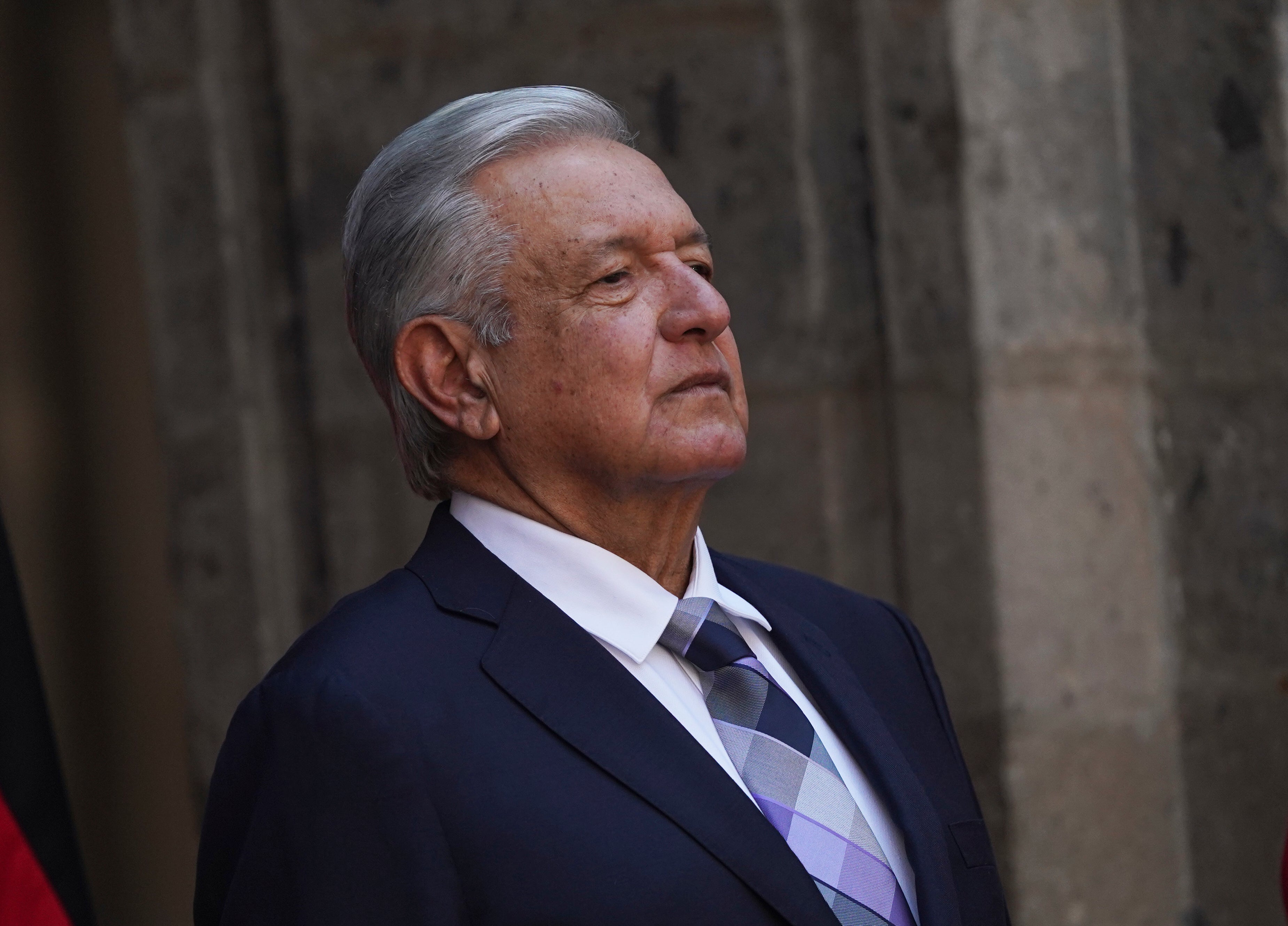Mexican president pushes back on US criticism on violence
Mexico's president angrily rejected comments by U.S. Secretary of State Antony Blinken that the Mexican government has lost control of parts of the country

Your support helps us to tell the story
From reproductive rights to climate change to Big Tech, The Independent is on the ground when the story is developing. Whether it's investigating the financials of Elon Musk's pro-Trump PAC or producing our latest documentary, 'The A Word', which shines a light on the American women fighting for reproductive rights, we know how important it is to parse out the facts from the messaging.
At such a critical moment in US history, we need reporters on the ground. Your donation allows us to keep sending journalists to speak to both sides of the story.
The Independent is trusted by Americans across the entire political spectrum. And unlike many other quality news outlets, we choose not to lock Americans out of our reporting and analysis with paywalls. We believe quality journalism should be available to everyone, paid for by those who can afford it.
Your support makes all the difference.Mexico’s president on Friday angrily rejected comments by U.S. Secretary of State Antony Blinken that the Mexican government has lost control over parts of the country.
However, President Andrés Manuel López Obrador acknowledged that Mexican cartels had placed people inside Mexico's drug regulatory agency to approve imports of fentanyl precursor chemicals from China.
Earlier this week, Blinken said “I think it's fair to say yes” when asked at a Senate hearing whether drug cartels control parts of Mexico.
The Mexican president responded to those comments at his morning press briefing Friday, saying, "That is false, it's not true. ... There is nowhere in the nation's territory where authorities are not present.”
But López Obrador acknowledged that cartels had stretched their tentacles into the Mexican government's federal drug regulatory agency, known by its initials in Spanish as Cofepris.
“They even had representatives in Cofepris, people lobbying inside Cofepris,” the president said, adding that some officials have been charged in that case.
Mexican cartels have imported fentanyl precursors under false names or as mislabeled products, with help from inside the regulatory agency. They then process it into fentanyl, press it into counterfeit pills made to look like oxycodone, Xanax or Percocet and smuggle it into the United States, where the drug has caused more than 70,000 overdose deaths per year.
López Obrador also pushed back against comments by Blinken suggesting that Mexico’s takeover of a port owned by a U.S. firm would hurt investment in Mexico. Last week, Mexican police seized a cargo terminal owned by the Alabama-based construction materials company Vulcan Materials.
Speaking before legislators, Blinken said “I am very concerned about that situation" and “the potential for a case like this to have a chilling effect ... on further investment or engagement by our companies as they see what's happening.”
López Obrador claimed he was defending Mexico's environment against Vulcan's crushed rock quarry on the Caribbean coast. However, Mexican authorities already had shut down Vulcan's quarrying activities last May, and López Obrador did not explain how seizing the port would protect the environment.
“I understand Mr. Blinken very well,” the president said. “He has to do his job.”
The president has been publicly sparring with Vulcan for over a year. He needs the Punta Venado port, near Playa Del Carmen, to get cement, crushed stone and other materials into the area to finish his pet project, a tourist train known as the Train Maya.
López Obrador’s comments on drug cartel control came after the Mexican government was stung by the execution earlier this week — apparently by a drug cartel — of a drug gang leader sought for months in the killings of two Jesuit priests.
Mexican police couldn’t find the suspect despite massive searches, until the drug gangs took matters into their own hands and apparently killed the suspect themselves.
The Mexican president confirmed that it involved a common practice among drug cartels, which often kill or turn over to police cartel members who have caused too much trouble and affected the gang's business.
“They executed him, who, we don't know,” López Obrador said, “perhaps because they thought that by doing so the search would end and the soldiers who have been there would leave.”